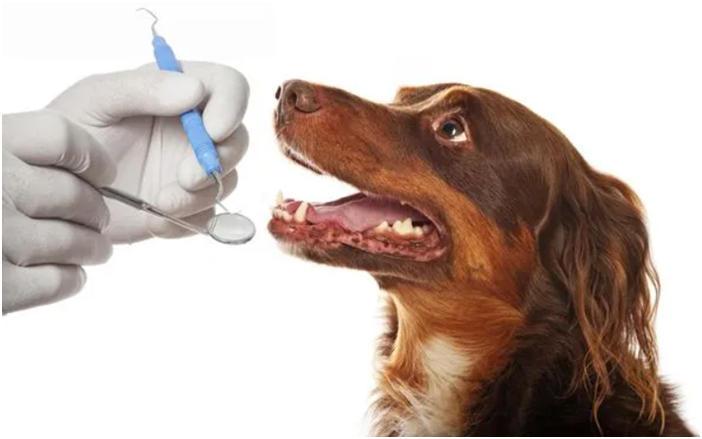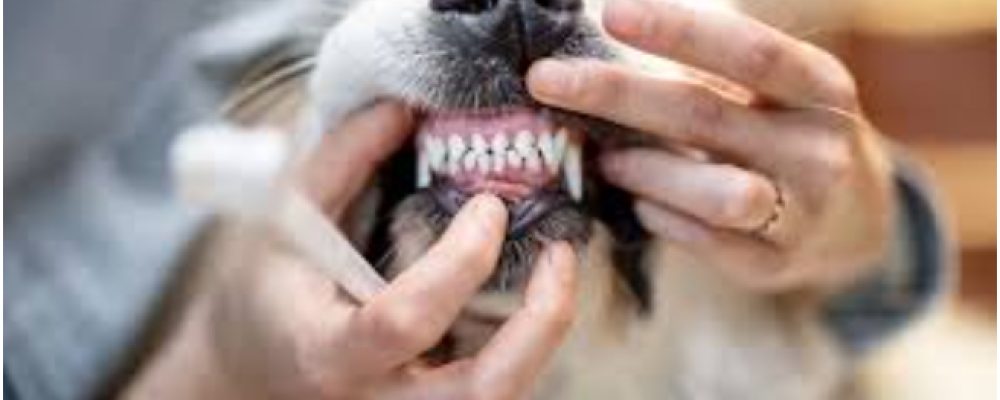Caring for your pet involves more than just providing balanced nutrition, regular walks, and toys—it also includes ensuring their overall health, especially their dental health. Your pet’s well-being is as important as your own, and this is particularly true when it comes to dental care. Many dog and cat owners often overlook the significance of preventive measures to avoid dental and gum problems.
According to veterinary dentist Dr. Andy Dellert from a vet clinic in Dubai, proper dental care for dogs and cats is essential: “If you notice bad breath or discomfort in your pet’s mouth, it’s important to schedule a dental cleaning.” Let’s explore modern methods of dental care that can help your pet avoid serious health issues in the future.
Why Do Dogs and Cats Develop Dental Problems?
Unlike humans, our four-legged friends cannot take care of their teeth by themselves, and this responsibility falls on their owners. There are several reasons why pets can develop dental issues despite all your efforts:
- Mechanical damage: Pets often chew on hard objects, bones, or play with sticks and stones, which can lead to cracks, chips, and enamel damage.
- Improper nutrition: A lack of essential nutrients in their diet can cause inflammation, loose teeth, and other dental issues.
- Poor water quality: Dirty or insufficient water can negatively affect teeth and gums.
- Genetic predisposition: Some breeds are more prone to dental problems or bite issues due to genetics.
Your pets need regular care, as healthy teeth are a crucial part of their overall well-being. Healthy mouths lead to healthy bodies.
Common Oral Diseases in Dogs and Cats
Just like humans, pets can develop a variety of oral diseases. Some of the most common issues include:
- Cavities and plaque: Tooth decay and plaque can come in various shades and lead to further complications.
- Tartar: This hardened plaque can cause painful gum irritation.
- Stomatitis: Inflammation of the mucous membranes in the mouth, causing pain and redness.
- Pulpitis and periodontitis: These serious conditions often require veterinary intervention and are characterized by severe pain, bleeding, and other unpleasant symptoms.
Dental problems in your pets are similar to those in humans, and your furry friends need help to relieve their pain and discomfort. It’s always better to prevent such issues from arising.
How to Tell if Your Pet Has Dental Problems

Pet owners who closely observe their animals can easily spot behavioral changes that might indicate dental problems. If a dog or cat suddenly starts behaving differently, it might be a sign of discomfort in their mouth. Like humans, pets become irritable when they experience tooth pain and might react aggressively if you try to pet or pick them up.
Here are a few signs that could indicate dental problems:
- Your pet tries to chew on one side, leaves food in the bowl, or refuses to eat altogether.
- Your pet may rub against corners or hard surfaces to relieve discomfort.
- Unexplained whining or aggression could also be symptoms of oral discomfort.
If you notice any of these behaviors, don’t delay a visit to the vet. Your pet shouldn’t have to suffer any longer than necessary.
Preventing Dental Diseases
To avoid stressful trips to the vet for dental problems, it’s important to focus on prevention. Here are a few tips to help maintain your pet’s dental health:
- Balanced nutrition: Consult your vet about the best diet for your pet. Many pet owners are surprised to learn how different their pet’s dietary needs are compared to their own.
- Clean water: Ensure that your pet always has access to clean, fresh water. This is important not only for their overall health but also for maintaining dental health.
- Vitamin and mineral supplements: If you’re not using specialized pet food, occasionally add supplements to their diet to help strengthen their teeth.
- Dental diets: Use specialized food mixes designed to prevent plaque buildup. A consultation with your veterinarian will help you choose the right option.
There are also special dental chews on the market designed to clean your pet’s teeth. However, it’s best to consult your vet before purchasing these treats to ensure they are effective.
Regular Dental Checkups
A healthy cat should have 30 teeth, while dogs can have up to 42. Regular dental checkups are important—aim to examine your pet’s teeth every two weeks or as recommended by your vet.
Proper Teeth Cleaning
Regular teeth cleaning helps prevent or delay the onset of serious dental diseases. There are special toothbrushes and toothpastes designed for pets. It’s important not to use human toothpaste, as it may contain ingredients that can cause allergies or poisoning in pets.
Start introducing your pet to this routine from a young age. At first, you can use your finger wrapped in a cloth dipped in broth, and later switch to a toothbrush.
Vet Visits

Scheduled vet visits are important, even if your pet’s teeth seem fine. A dental check-up at least once a year can help detect any issues early and provide comprehensive treatment. Key stages of treatment may include:
- Professional dental cleaning using an ultrasonic scaler, followed by polishing.
- X-ray imaging of the jaws.
- Periodontal examination.
- Developing a treatment plan.
In some cases, a vet may recommend a biopsy if they detect any unusual growths. During the examination, pets are usually under anesthesia, so they won’t feel any discomfort.
Don’t hesitate to ask your vet any questions—knowing more will help you keep your pet healthy and happy.
To learn more about proper pet care and dental health, visit the Modern Vet clinic website, where you’ll find plenty of useful information and advice.
Conclusion
Caring for your pet’s teeth is not just about prevention—it’s a way to maintain their health and quality of life. Regular cleaning, proper nutrition, timely vet visits, and careful observation of behavioral changes will help you avoid serious dental problems and discomfort. Your pet’s dental health is an essential part of their overall well-being, so make dental care a routine part of your care regimen.
Remember, healthy teeth don’t just improve your pet’s appearance—they are key to ensuring their comfort and energy. Just like humans, animals feel much better when they aren’t in pain or discomfort.
So, keep in mind: healthy teeth are not just a cosmetic benefit but an important aspect of your pet’s overall health. Provide them with proper care, and they’ll reward you with energy and loyalty for years to come.
If you need further information or personalized advice, visit Modern Vet clinic, where experienced veterinarians are ready to help you ensure your pet receives the best care possible.




